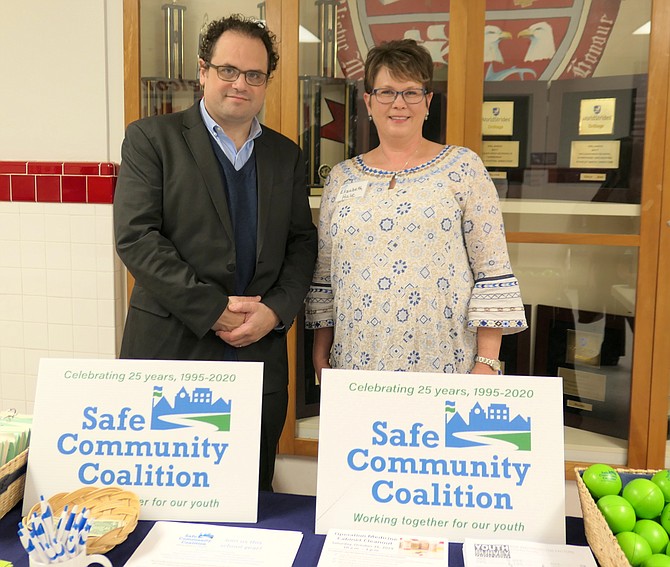Approximately 400 people gathered in the Langley High School and McLean High School auditoriums Oct. 10 and Oct. 15 to see the Safe Community Coalition’s free public screenings of the IndieFlix Original documentary “LIKE,” which takes a deep dive into impact of technology on young people.
In the film, young people discuss the pervasiveness of social media on their lives, admitting they have an unhealthy relationship with their phones. For all the positive qualities of connecting on social media, the constant interaction on platforms such as Instagram and Snapchat invariably leads to a harmful amount of self-comparison, a fear of missing out, and a deterioration of relationships that need face-to-face interaction to subsist. Exacerbating this is counting the number of “likes” as a measure of one’s self-worth and spending substantial time perfecting an online “brand” that can feel disingenuous when it doesn’t always mesh with reality.
What’s all this time online doing to our brains?
IN THE FILM, adolescent medicine specialist Dr. Cora Breuner says, “There’s a lot of data that show that people get addicted to their phones because the same addiction centers light up as if you were using heroin.” Another part of the brain lights up on an MRI both if you’re in love and if you’re using your phone. “When kids say, ‘I love my phone,’ they really do!” says Bruener.
“The most important thing for young people to understand is that these devices are not designed for you,” says Max Stossel of the Center for Humane Technology. “You are not the customer; you are the product being sold here and are you really using technology or is technology using you?”
Following the movie, Dr. Clifford Sussman, MD, led discussion and took questions from the audience. Before the Q&A, he used a model of the brain to point out the different areas affected by screen use.
“The brain’s limbic system, what we refer to as the ‘animal or lizard brain’ thrives on immediate gratification – it’s the driver,” said Dr. Sussman. “Yet the prefrontal cortex, which serves as our brakes, isn’t yet fully developed in teens. It’s a constant struggle everyday between the driver and the brakes.”
Asked if there was a “right age” for kids to get a phone, Dr. Sussman said, “There is no definitive answer to that. Even the American Academy of Pediatrics doesn’t have a recommendation, perhaps because technology changes so quickly.”
Dr. Sussman stressed the importance of structure, especially on the weekends when there is a lot of time to fill. While overscheduling kids to the point of exhaustion is detrimental, not having enough structure can backfire. “Downtime to many kids means screentime,” explained Dr. Sussman. Parents need to be cognizant of all screentime – video games, social media, YouTube, Netflix, TV, etc. “Kids who receive continuous stimulation have a lower tolerance for boredom, and the lure of the screen grows more powerful as the vicious cycle continues.”
A BALANCED RELATIONSHIP with digital technology is the goal. For those who want to regain some balance, consider reframing the intent from “spending less time on your phone” to “spending more time on your life.”
For a listing of specific takeaways, visit the SCC’s website at www.mcleanscc.org for Tips for Managing Social Media Use.
The Safe Community Coalition is a 25-year old non-profit organization of community volunteers. To find out more about the Safe Community Coalition, visit mcleanscc.org. You can also visit thelikemovie.com for a list of resources. And follow us on Facebook and Twitter with @mcleanscc.
